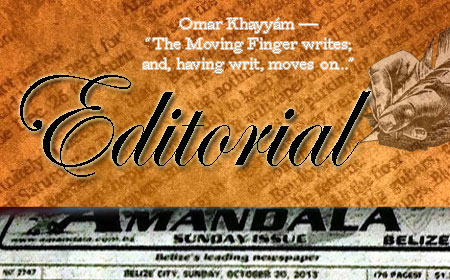“Deep within Leaves of Grass smolders a question we have never answered satisfactorily. ‘The friendly and flowing savage … Who is he?’ asks Whitman. ‘Is he waiting for civilization or past it and mastering it?’ D. H. Lawrence asks it, too, even as he concedes that the native ‘doesn’t believe in us and our civilization,’ for ‘the red life flows in a different direction from the white life.’ Thoreau, deep in the Maine woods with a Penobscot guide who baffles and amazes him, concludes that ‘one revelation has been made to the Indian, another to the white man.’”
– pg. ix, Preface, The Way Of The Human Being, by Calvin Luther Martin, Yale University Press, 1999
The world has changed since the end of World War II in 1945. There have been native leaders in the non-European areas who managed to achieve some socio-economic progress for their peoples. These included Mahatma Gandhi in India, Mao Tse-tung in China, Fidel Castro in Cuba, Nelson Mandela in South Africa, Julius Nyerere in Tanzania, Robert Mugabe in Rhodesia, and so on. On the other hand, there have been many dictatorial leaders who have betrayed their native peoples and accumulated obscene wealth for themselves in Western banks. These included Ferdinand Marcos in the Philippines, the Shah (Pahlavi) in Iran, Mobutu Sese-Seko in Zaire, Rafael Trujillo in the Dominican Republic, Anastacio Somoza in Nicaragua, Francois “Papa Doc” Duvalier in Haiti, and so on.
Still, by and large the financial wealth and military power configurations of planet earth have remained basically the same. Europe, the United States, Canada, and what we call the North Atlantic Treaty Organization (NATO) nations still control planet earth, although challenged by Russia and China in different instances.
The Europeans, after several centuries of warfare amongst themselves, had begun spreading out into Africa, Asia, and America in the fifteenth century. Their centuries of war had improved their development of guns and artillery and their deployment of horses to the point where they were able to invade and conquer Africa, Asia, and America, which they basically shared amongst themselves. We are talking about the British, the Spanish, the Portuguese, the French, the Dutch, the Germans, the Italians, and so on.
The Europeans introduced chattel slavery into Africa and America, but, perhaps more important in the long term, they introduced an attitude and philosophy of greed insatiable. The story is told of Francisco Pizarro, the Spanish conquistador, and Atahuallpa, the Inca emperor, in Peru in 1532/33. With the help of those of Peru’s natives who were enemies of the emperor, Pizarro had captured and imprisoned him. Atahuallpa offered Pizarro a large room filled with gold in order to release him. Pizarro agreed, but then, after receiving the room of gold, he killed the Inca. Pizarro, you see, wanted all of Peru’s gold, not just a roomful.
Time and time again, native peoples made the same mistake in their dealings with the Europeans from across the sea. Native peoples could not understand how one could be so greedy. They could not understand how people could want to own the land and the rivers which had given life. Native peoples believed that the land and the rivers belonged to all of us. Certainly, we humans would perish, but the land and the rivers and the mountains and the sky would remain, forever, and forever, always giving and nurturing life. This was the native vision.
Sometime in 1958 or 1959, British Honduras welcomed a group of separatist Europeans into our country. Although the movement for native self-rule, as led by Mr. Price’s People’s United Party (PUP), was very strong at the time, there was a reality which we Belizeans did not face up to then and we are not facing up to now. In 1958 and 1959, British Honduras was a British colony and we Belizeans were “British subjects.” In the parlance of the diplomats, British Honduras was “taken” to self-government by the British in 1964 and “taken” to independence in 1981 by the British. We Belizeans did not seize freedom: it was extended to us with the appropriate British protocols. How much are we, the native Belizean people, actually in control of our own patrimony?
The late Dr. Leroy Taegar taught us to ask always for the “working papers.” Where are the working papers for the introduction of the separatist Europeans? Was this decision one conceived of by our Belizean leaders, or was it presented to them, fait accompli, by the British rulers? The relevant question today, more than ever, is this: has this been a good deal for roots Belizeans or has it contributed to our continued subjugation? Remember, the decision to welcome the separatist Europeans was never discussed with roots Belizeans, nor were we asked to vote on it. This is real.
Somebody better start explaining to us quickly why 75 tons of rice sitting in containers at the Big Creek port should be destroyed. Early January every calendar year is a time when more Belizeans are hungry than at any other time of the year. This is “maaga season.” It’s bad enough for our uniformed forces to be destroying Belize’s weed plants and fields every day while we keep on importing the same marijuana from Mexico, and when, state by state, the United States of America has been legalizing marijuana and preparing for weed corporations to hit the stock market. That is bad enough, Jack, but destroy rice? Dara Robinson probably said it best: “Madness!”

